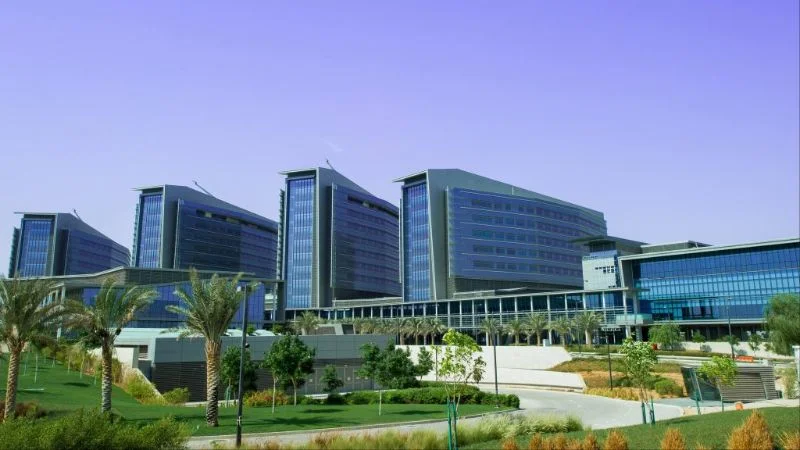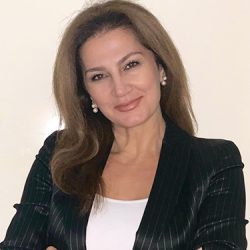
Interview with Kelly Sue Vorster,
Director of the Patient Experience Department in SSCM in Abu Dhabi
„Communication skills are extremely important for the medical staff. Small changes in how clinicians say things to patients make a huge difference. Due to this, we find it very important to have training sessions for our staff to uplift their communication skills in delivering excellent Patient Experience “ says Kelly Sue Vorster
“Тhe needs of patients come first”,is the guiding principle and a strategic goal of the world leading hospitals. The global healthcare leader, the Mayo Clinic, a well-known innovator in the area of Patient Experience brought their philosophy in Abu Dhabiwith the establishment of one of the largest hospitals in the UAE – Sheikh Shakhbout Medical City Abu Dhabi. The new hospital reflects the commitment of SEHA to clinical excellence and a superior Patient Experience and should be a top destination for medical care in the Middle East over the next decade.
During the International Patient Experience Symposium, which recently took place in Abu Dhabi, world healthcare leaders pointed out that putting patients first requires more than world class clinical care and that it encompasses every aspect of a patient’s encounter, including physical comfort and educational, emotional and spiritual needs.
Sistina Ophthalmology Skopje, which is the first medical hospital in the region to set patient experience as its strategic goal and the first to establish an Office of Patient Experience, was shoulder by shoulder with world leading hospitals. Dr. Vesna Cado, who is the creator of a new model of patient care – the Patient Luxury Experience, on which the management of Sistina Ophthalmology is based on, and the founder of the PLX Academy, participated in the Symposium.

She talked to the Director of the Patient Experience Department in SSCM, Kelly Sue Vorster, to exchange experiences, knowledge and offer new solutions to improve the healthcare of patients.
At the very beginning of the conversation they agreed that is a big responsibility and privilege to work in healthcare, and that it makes a huge impact (either positive or negative) on the lives of other human beings. Also, that we should not take it for granted.
Communication skills are extremely important for the medical staff – small changes in how clinicians say things to patients make a huge difference.
PLX ACADEMY: Mrs. Kelly what brought you to SSMC and what is the PX philosophy at the Mayo Clinic in Abu Dhabi?
Kelly Sue Vorster: I have been at SSMC in Abu Dhabi for just a little over a year now. The hospital was established as a joint venture with SEHA, as part of the vision of Abu Dhabi to evaluate healthcare in the region to 2030. In 2019, SEHA partnered with the Mayo Clinic on a joint venture to operate SSMC. As a Mayo Clinic employee of 23 years, I was given the opportunity to join the Patient Experience team at SSMC to work together on a strategy and philosophy.
Our Patient Experience strategy blends the rich culture and traditions of the UAE, with the core values and philosophy of the Mayo Clinic, including the primary values of “The needs of the patient come first”. That philosophy means that patient experience runs deeper than treatment or diagnosis and requires a higher understanding of human beings. At a process level, that means that we are working toward a culture where in everything we do, from workflows and the creation of policies, to how patients flow through our facility, we want to look at through the lens of the patient and their loved ones. We want our systems to circle around the patient, not the patient circling around what is easier for us.

In SSMC patients receive individualized attention from a team of experts working together to deliver trusted and compassionate care. Our model of care guarantees meeting the needs of each patient in timely and effective manner, starts from the very first point of contact with the hospital, to the moment they return home, safe and sound.
PLX ACADEMY: How does it influence medical results and loyalty of patients? What are the greatest benefits?
Patient Experience, at its core, is about doing the right thing and putting the needs of the patient first. A physician can have great clinical outcomes, but if the patient feels like a statistic and is not respected as a human being, the patient will most likely go elsewhere or at the very least tell friends and family about their negative experience. Healthcare staff needs to understand how important it is to connect with their patients, respect their time, involve them in the decision-making and make future steps in their care comprehensible. If a clinician can do this, research shows some of the greatest benefits are adherence to treatment plans and follow-up care. In short, the quality of the care and the outcomes are better.
Another great benefit is the loyalty to the physician and the facility. Patients through word of mouth will “advertise” to others, their positive testimony of the care team and will want to come back to the facility for any additional medical needs. Finally, when physicians and care teams can connect with their patients, it increases their job satisfaction as well … it is an intrinsic motivator that helps continue the positive cycle.
PLX ACADEMY: Doctors, nurses and other healthcare administrators are part of the patient journey and greatly influence the patient experiences and excellence in medical care. What is your approach towards employees? Why is it crucial to have everybody “on board”?
Kelly Sue Vorster: Our approach with the healthcare team is to remind them of the“why”?Why do they come to work every day? What drove them to choose the healthcare field? Do they show up just for the pay check or for something much more meaningful? They can come to work and just get through their day of tasks, or they can come to work inspired to touch the lives of patients in a positive way. It is a choice. For some, it is a perspective shift. When we are at work, it does not take too much energy to be positive, respectful and compassionate with patients.
We also want to set clear expectations and standards. Even if the “why” of an SSMC team member is unsure or is not driven by patient-centеred care, we want to make sure we communicate to them the standards we except. This is because all staff members from every level represent SSMC, they are the face of SSMC to our patients. With setting clear expectations, it allows accountability and the ability to have followed up mentoring/coaching conversations with team members that are not meeting the standards that have been set forth to them.
PLX ACADEMY: How important are communication skills of medical staff in delivering excellent Patient Experience? Do you have trainings or coaching as tools to uplift the skills of the staff?
Kelly Sue Vorster: We feel communication skills are extremely important for the medical staff. Small changes in how clinicians say things to patients make a huge difference. For example, rather than saying, “Why are you here today?” they can communicate by saying “I have reviewed your records/appointment request, but I would like to hear directly from you, what are the top concerns you would like to discuss today?” Another example is, rather than saying “There is nothing more we can do for your pain,” they can communicate by saying “After a thorough review of your current condition and all clinical options, unfortunately at this time, there are no further procedures/treatment for your pain. I know this can be hard to hear, so I am here to answer any additional questions and future steps that you would like to take”. These changes in the delivery of the message, only take a few more minutes, but will help establish a connection with the patient, and increase their trust in our care.
Due to this, we find it very important to have training sessions for our staff. We teach them service excellence behavior and practical ways to verbally express empathy and validation with patients. We also select staff across the organizations who exemplify excellence in communication. We give them the opportunity to be Patient Experience champions so that they can assist in monitoring and training other staff in their area.
PLX ACADEMY: We all become patients at one moment of our life. Professionally, you are focused on experiences in medical care. How critical are you when you find yourself “in the shoes” of a patient?
Kelly Sue Vorster: Yes, most of us in healthcare have been patients, or have supported family or friends going through a health experience. When, as a “caregiver”we are in the role of a “patient”, it heightens our awareness of how we are treated and the environment within the healthcare setting. It enlightens us to all the things that could be improved – from the unfriendly tone of the appointment representative, to the long waiting time to see the provider, to the physician not making eye contact or not listening to our concerns.
On the other hand, when we put our health in the hands of facilities and they hold it gently, they validate our fears, they go above and beyond to accommodate us and they make us feel that they care, it is forever engraved in our memory.
I fear that sometimes, healthcare workers become numb to the humanity of those we serve, and it becomes just a routine job. However, we need to remember what a huge impact (either positive or negative) we can make in the lives of another human being. It is a huge responsibility and privilege to work in healthcare, and we should not take it for granted.
